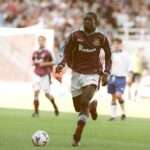For a new rider, or even for a rider that has been around the block a few times, there are many phrases that pop up in cycling conversation that may sound odd, even a little off. For instance, why is everyone calling that guy Fred when his name is Mike? Is that guy they all call a pro really a pro? Is chamois time really training time? To find out what these terms really mean, read on get the inside scoop on cycling jargon.
Bike Handling
The aggregation of skills that enables a bicycle rider to navigate successfully through the various challenges posed by the sport. A road rider with good bike handling skills, for example, would corner, sprint, ride in a pack, draft, climb, and descend well.
Chamois Time
A common sight after a race are groups of riders standing around with their cycling shorts still on. But experienced cyclists know that one of the first things you should do after a race or ride is get the shorts off! The longer your sweaty shorts with their sweaty chamois stay on, the greater your chance of getting a saddle sore is. Also, leaving the shorts on shows a lack of attention to recovery and hygiene that betrays a similar lack of attention in other areas.
So when the race is done, and you see someone standing around in their shorts, they are getting in some additional “chamois time”. Chamois time, in one sense, refers to time in the saddle, on your chamois, actually training or racing. In another sense, when you see that benighted rider in his shorts, he is putting additional “chamois time” after the race by not changing. As everyone knows, chamois time is training time! So by all means Mr. Sweaty Pants, leave the chamois on and rack up another quality couple of hours. But don’t start complaining when you spend the next week off the bike with a saddle sore the size of a grapefruit.
Fred
A broad category of cycling derogation (someone who is “pro” is a fred, but a fred is not necessarily “pro”) generally referring to someone that disobeys certain fashion and behavioral mores of the cycling world. The problem is that the term’s meaning is elusive, and tends to be dependent upon the subjective perception of the person using the epithet. All of which is a long way of saying that the best way to spot a fred is to look for the guy calling everyone else fred.
Hook
To hit the front wheel of a rider behind with your rear wheel. You often hear epic stories of riders, particularly in track races, hooking one another in the heat of competition. The practice grew out of the mores of the pack – it is not okay to take your hands off the bars so, if you want to interfere with someone, then you have to come up with more creative methods. It’s kind of like in basketball or soccer when a player will attempt to do something nasty that nevertheless superficially could fall within the letter of the rules. So the rider didn’t take his hands off of the bars, anyone’s rear wheel could skip, right? Whatever the genesis of the practice, it’s unbelievably dangerous, potentially lethal really, and it has no place in any cycling context.
Pro
A derogatory expression for someone, inevitably not actually a professional racer, who adopts the perceived mannerisms of a pro without anything to back it up. Typically a “pro” rider will be wearing the kit of a pro team, won’t be wearing a helmet, and will ride cased in a veneer of arrogance. A “pro” often feels the need to prove that he or she is stronger than everyone else, even if this is demonstrably untrue.
Squirrel
A rider with minimal bike handling ability. The name comes from the erratic movements the squirrel makes while riding in a pack. The squirrel always looks uncomfortable in the pack, and this discomfort translates into the rest of the riders, upsetting the pack’s cohesion. While an inexperienced rider can be a squirrel, squirreliness isn’t limited to new cyclists. The reality is that you just can’t tell if rider is a squirrel until you get that poor frightened beastie into a moving group of riders, then all that squirrely fear will come out in a darting and unpredictable display of bike not-handling skills.
Technical
A description of a given road or trail meaning that passing through requires adept bike handling skills. On a road, technical typically refers to a section taken at speed (either a descent or the approach to the finish line) with, for example, tight turns, poor pavement or steepness. A technical trail can refer to any section, up or down, with a wide variety of challenges such as rocks, loose dirt, sand, and so on, requiring particular skill, strength and finesse.
Ten Speed
An outdated term for any road bicycle. A reference to the number of gears as an identifying characteristic is doomed to fail. This term became popular during a boom in road bicycle sales in the 1970s. At that time, a road bike had, at most, two chainrings and five cogs, leading to a total of “10 speeds”. Currently, a road racing bicycle will still have two chainrings but as many as 10 or 11 cogs. Thus 20 or 22 gears are typical. Many road bikes also have three front chainrings, creating the possibility of 30 or 33 speeds. So referring to a bike by the number of speeds is not accurate and, well, silly. The tradition endures, however, and many people will refer to a road bike as a ten speed.
Tete de la Course
In French this expression literally means “head of the race,” and refers to either the rider or riders who are in the lead at any point in the race. Tete de la Course also has a broader meaning: One rider aggressively forcing the pace and, by sheer force of will and leg power, transforming the race into something special. Doing this is racing a race “tete de la course” from the front, with passion, intensity and panache.
Tuesday Night World Championships
Every town has a training ride or race, it could be a Tuesday night, it could be in the morning on Saturday. The name comes from the very common Tuesday night training races held around the country. Regardless of when it is or what it is, the fact is that all the locals treat it like the world championships. This is not the ride you show up for out of shape, tired or unmotivated. This is the ride that everyone knows matters, at least locally.
So you show up, and the prestige seems to hover over the few local pros, the strong guys that consistently make the ride, force the pace, and win the sprint. Everyone knows. And everyone fights like it is the worlds, like every inch is the stuff of legend. Sure it’s absurd and the only reward is local renown, maybe a rubber chicken or a round of beers. But it’s great training if you use it properly, a great way to meet the local fast crowd and, for many, it is the culmination of training, the focus, the end. The world championships.
Twitchy
When a bicycle, because of a number of possible design inputs, responds very rapidly to rider input. Some riders see twitchiness as instability at speed, but it can also be a positive, resulting in very quick and precise steering in experienced hands.
Take-Home Message
Is this a definitive list? Not even close. But at least now you know a little bit more about some of those odd words you heard floating around the local group ride. So if your bike is twitchy, try to suppress your inner squirrel, resist all pro tendencies and, after your local world championship, make sure to cut short your chamois time.



